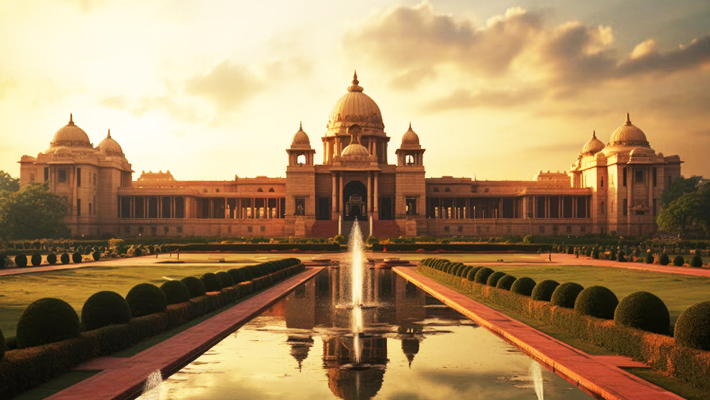
Money is something which everyone has a unique experience with. It is one of the major aspects which is distributed unequally in society and given the quantity they possess, People have varying relationships with it. Though the term excess money can be relative with respect to standard of living and region, but for the sake of simplicity let’s say people with excess money can have all their needs met and have leftovers while the less fortunate have to count every penny they spend. One thing which is remarkable is how various groups have different levels of expressing luxury and how it has changed over time.
Luxury Begets Status
Having a large sum of money is everyone’s desire who is indulged in the capitalistic society. It can be to buy whatever that gives them happiness, give their family the best, give their children the best education or just enjoy the security just by possessing it. But with how money flows in the economy, not everyone can enjoy that privilege. Luxury, or Opulence as I have aptly titled, isn’t a feeling that can be enjoyed by everyone, luxury itself implies it is only something a few can achieve. The qualities associated with luxury have changed overtime and it also varies with how an individual has made money. Luxury is status.
Old Money & New Money
In times of yore, luxury was associated with how much land one owned and how many people they employed, then the aristocracy came who were associated with royalty and they were the center of society, holding grand balls at their leisure which was filled with food and wine. This was largely European. But we see the terms ‘Old money’ and ‘New Money’, which has been tossed around a lot lately. This is the current generational clash of show of luxury. Old money refers to people who have accumulated wealth over generations and have connections with other people of old money and it is typically people well into their 60’s. Their expression of luxury was bespoke fashion, Vintage make cars and a penchant for rare items and jewellery. The current generation in my opinion has seen the most rapid fluctuation of capital as we have seen a lot of new high net worth individuals earning generations worth of wealth in just a decade or two. New money, in other words, people who found wealth recently, express their luxury in branded goods, they sport the most expensive products irrespective of its quality or appearance, as high price products are automatically associated with status in current culture. The internet, of course, has changed this spectacle. Modesty is something which is scarce on the internet, the desire to expose their possessions on social media is an ultra luxury expression of the new money. But this has created a new means of comparison irrespective of proximity.
The Debt Trap
Envy is a feeling which makes you desire what the other person has, and it is not a pleasant feeling anyone wants to have, it makes you feel incompetent, resentful at your own powerlessness at possessing those objects of desire.
Everyone wants to feel wealthy and sport the latest German automobile, with the advancement in Lending institutions (banks), and rise of luxury brands, luxury isn’t a far off reach for people now. With the perception of high cost being associated with high status, it didn’t take long for corporations to manifest this and make a profit off of it. It is no surprise that the owners of luxury brands occupy the lists of world’s wealthiest individuals. The current era has succeeded in marketing luxury for the masses and also at the same time has put a lot of individuals in debt.
No one desires to look poor as it is a trait of negativity to the viewing eyes, with the number of loans being taken to buy expensive commodities, this has taken a negative impact on the savings of those seekers. On the surface it is easy to admonish them for such liability purchases.
The Rationale
The logical advice to give the less fortunate is to invest in meaningful things like getting a high education or to invest in assets which will give them huge returns in the long run. But the question that can be posed is “how long?”,” I don’t want it later, I want it now”, “I don’t want it when I am old, I want it when I am young so I can enjoy them”, “ I won’t be alive later, I want to enjoy my life to the fullest”. These are some of the questions they have and some of them might sound ridiculous but some of them do make sense. Patience is not a virtue when you are suffering, prolonged suffering leads to more suffering and they seek to alleviate their incompetence by taking the quick way out.
One thing we have to learn is that the pursuit of desire makes anyone narrow minded and does not make people consider long term consequences of their actions, so what can be foolery prima facie to the observer may not be the same for the affected party. Tunnel vision makes you lose sight over the long run. There is a saying for this though it may not be apt here, “While I was counting the moon, I lost the stars”.







